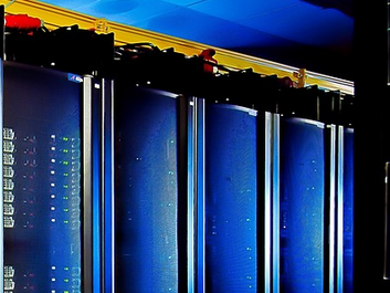BASF and Hewlett Packard Enterprise announced that they will collaborate to develop a supercomputer for industrial chemical research at BASF based on the latest generation of HPE Apollo 6000 systems.
According to BASF, the new system will make it possible to answer complex questions and reduce the time required to obtain results from several months to days across all research areas. As part of BASF’s digitalization strategy, the company plans to significantly expand its capabilities to run virtual experiments with the supercomputer. It will help BASF reduce time to market and costs by, for example, simulating processes on catalyst surfaces more precisely or accelerating the design of new polymers with pre-defined properties.
With the help of Intel® Xeon® processors, high-bandwidth, low-latency Intel® Omni-Path Fabric and HPE management software, the supercomputer acts as a single system with an effective performance of more than 1 Petaflop. This equals one quadrillion floating point operations per second. With this system architecture, a multitude of nodes can work simultaneously on highly complex tasks, dramatically reducing the processing time.
- BASF SE, Ludwigsgafen, Germany
- Hewlett Packard Enterprise (HPE), Palo Alto, CA, USA
